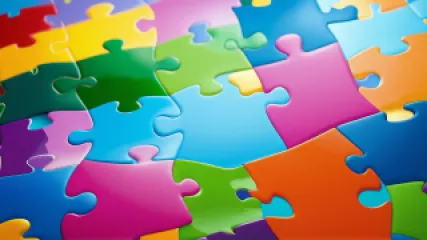Mastering Emotional Intelligence Basics: A Step-by-Step Guide
Mastering Emotional Intelligence Basics: A Step-by-Step Guide
Emotional intelligence (EI) is a crucial skill that plays a significant role in our mental health and overall well-being. It refers to the ability to recognize, understand, and manage emotions, both in ourselves and in others. By enhancing our emotional intelligence, we can improve our relationships, reduce stress, and make better decisions.
In this step-by-step guide, we will delve into the basics of emotional intelligence, providing you with the necessary guidance to develop and enhance this essential skill. Whether you're a complete beginner or seeking to refine your existing emotional intelligence, this guide will equip you with valuable insights and practical strategies to navigate the complex realm of emotions.
Section 1: Understanding Emotional Intelligence
1.1 What is Emotional Intelligence?
Emotional intelligence encompasses a range of abilities that enable us to perceive, understand, and regulate emotions effectively. It involves self-awareness, self-management, empathy, and skilled relationship management. By mastering emotional intelligence, we can foster healthier relationships, improve communication, and make more informed decisions.
1.2 Why is Emotional Intelligence Important for Mental Health?
Emotional intelligence plays a vital role in our mental health and well-being. It allows us to recognize and address our own emotions, leading to improved self-regulation and reduced stress. Additionally, emotional intelligence helps us navigate social interactions, manage conflicts, and cultivate resilience in the face of adversity.
Section 2: Developing Emotional Intelligence
2.1 Enhancing Self-Awareness
Self-awareness is the foundation of emotional intelligence. By developing a deep understanding of our own emotions, we can better navigate our thoughts, feelings, and behaviors. This section will provide practical exercises and strategies to enhance self-awareness and promote self-reflection.
2.2 Cultivating Self-Management
Self-management involves the ability to regulate and control our emotions effectively. It empowers us to respond rather than react impulsively, make thoughtful decisions, and manage stress. This section will explore techniques such as mindfulness, self-care, and stress management to develop self-management skills.
2.3 Building Empathy and Social Awareness
Empathy is the ability to understand and share the feelings of others. Social awareness, on the other hand, involves recognizing and understanding the emotions of those around us. This section will provide guidance on how to develop empathy and social awareness, fostering stronger connections and more meaningful relationships.
2.4 Improving Relationship Management
Relationship management refers to the ability to handle interpersonal interactions effectively. By developing strong relationship management skills, we can communicate assertively, resolve conflicts constructively, and build positive connections. This section will explore techniques for improving relationship management and nurturing healthy relationships.
Section 3: Resources for Enhancing Emotional Intelligence
3.1 Emotional Intelligence Workshops Online
Online workshops offer an interactive and structured learning environment to enhance emotional intelligence. They provide participants with valuable knowledge, practical exercises, and opportunities for self-reflection. This section will highlight some reputable online workshops that focus on emotional intelligence development.
3.2 Online Resources for Emotional Intelligence
The internet offers a wealth of resources to support individuals in their journey to improve emotional intelligence. From articles and blogs to interactive quizzes and video tutorials, this section will provide a curated list of online resources that can deepen your understanding and help you further develop your emotional intelligence.
Conclusion
Mastering emotional intelligence is a lifelong journey that requires commitment and practice. By understanding the basics of emotional intelligence and implementing the strategies discussed in this guide, you can cultivate stronger self-awareness, improve your relationships, and enhance your overall well-being.
Remember, emotional intelligence is not an innate trait but a skill that can be developed and refined over time. Embrace the process, be patient with yourself, and enjoy the transformative power of emotional intelligence.






